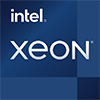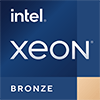
Intel Core i7-2860QM Benchmark, Test and specs
Last updated:
The Intel Core i7-2860QM has 4 cores with 8 threads and is based on the 2. gen of the Intel Core i7 series. The processor uses a mainboard with the PGA 988 socket and was released in Q4/2011. The Intel Core i7-2860QM scores 716 points in the Geekbench 5 single-core benchmark. In the Geekbench 5 multi-core benchmark, the result is 2,637 points.

| Name: | Intel Core i7-2860QM |
|---|---|
| Family: | Intel Core i7 (298) |
| CPU group: | Intel Core i 2000M (46) |
| Architecture: | Sandy Bridge H |
| Segment: | Mobile |
| Generation: | 2 |
| Predecessor: | -- |
| Successor: | -- |
CPU Cores and Base Frequency
The Intel Core i7-2860QM has 4 CPU cores and can calculate 8 threads in parallel. The clock frequency of the Intel Core i7-2860QM is 2.50 GHz (3.60 GHz). The number of CPU cores greatly affects the speed of the processor and is an important performance indicator.
| CPU Cores / Threads: | 4 / 8 |
|---|---|
| Core architecture: | normal |
| Cores: | 4x |
| Hyperthreading / SMT: | Yes |
|---|---|
| Overclocking: | No |
| Frequency: | 2.50 GHz |
| Turbo Frequency (1 Core): | 3.60 GHz |
| Turbo Frequency (4 Cores): | -- |
Internal Graphics
The Intel Core i7-2860QM has integrated graphics, called iGPU for short. Specifically, the Intel Core i7-2860QM uses the Intel HD Graphics 3000, which has 96 texture shaders and 12 execution units. The iGPU uses the system's main memory as graphics memory and sits on the processor's die.
| GPU name: | Intel HD Graphics 3000 |
|---|---|
| GPU frequency: | 0.65 GHz |
| GPU (Turbo): | 1.30 GHz |
| Compute units: | 12 |
| Shader: | 96 |
| Hardware Raytracing: | No |
| Release date: | Q1/2011 |
| Max. displays: | 2 |
|---|---|
| Generation: | 6 |
| Direct X: | 10.1 |
| Technology: | 32 nm |
| Max. GPU Memory: | 2 GB |
| Frame Generation: | No |
Hardware codec support
A photo or video codec that is accelerated in hardware can greatly accelerate the working speed of a processor and extend the battery life of notebooks or smartphones when playing videos.
| h265 / HEVC (8 bit): | No |
|---|---|
| h265 / HEVC (10 bit): | No |
| h264: | Decode / Encode |
| VP8: | No |
| VP9: | No |
| AV1: | No |
|---|---|
| AVC: | Decode / Encode |
| VC-1: | Decode |
| JPEG: | No |
Memory & PCIeThe processor can use up to 32 GB memory in 2 (Dual Channel) memory channels. The maximum memory bandwidth is 25.6 GB/s. The memory type as well as the amount of memory can greatly affect the speed of the system. |
|
| Memory type: | Memory bandwidth: |
|---|---|
| DDR3-1066 DDR3-1333 DDR3-1600 | 17.1 GB/s 21.3 GB/s 25.6 GB/s |
| Max. Memory: | 32 GB |
| Memory channels: | 2 (Dual Channel) |
| ECC: | No |
| PCIe: | 2.0 x 16 |
| PCIe Bandwidth: | 8.0 GB/s |
Thermal ManagementThe thermal design power (TDP for short) of the processor is 45 W. The TDP specifies the necessary cooling solution that is required to cool the processor sufficiently. The TDP usually gives a rough idea of the actual power consumption of the CPU. |
|
|---|---|
| TDP (PL1 / PBP): | 45 W |
| TDP (PL2): | -- |
| TDP up: | -- |
| TDP down: | -- |
| Tjunction max.: | 100 °C |
Technical details
The Intel Core i7-2860QM is made in 32 nm. The smaller the manufacturing process of a CPU, the more modern and energy-efficient it is. Overall, the processor has 8.00 MB cache. A large cache can greatly speed up the processor's speed in some cases such as games.
| Technology: | 32 nm |
|---|---|
| Chip design: | Monolithic |
| Socket: | PGA 988 |
| L2-Cache: | -- |
| L3-Cache: | 8.00 MB |
| AES-NI: | Yes |
| Operating systems: | Windows 10, Linux |
| Virtualization: | VT-x, VT-x EPT |
|---|---|
| Instruction set (ISA): | x86-64 (64 bit) |
| ISA extensions: | SSE4.1, SSE4.2, AVX |
| Release date: | Q4/2011 |
| Release price: | 295 $ |
| Part Number: | -- |
| Documents: | Technical data sheet |
Rate this processor
Benchmark results

The benchmark results for the Intel Core i7-2860QM have been carefully checked by us. We only publish benchmark results that have been created by us or that have been submitted by a visitor and then checked by a team member. All results are based on and fullfill our benchmark guidelines.
Cinebench R23 (Single-Core)
Cinebench R23 is the successor of Cinebench R20 and is also based on the Cinema 4 Suite. Cinema 4 is a worldwide used software to create 3D forms. The single-core test only uses one CPU core, the amount of cores or hyperthreading ability doesn't count.

|
Intel Core i5-2500
4C 4T @ 3.70 GHz |
||

|
Intel Core i5-2500k
4C 4T @ 3.70 GHz |
||

|
Intel Core i5-5287U
2C 4T @ 3.30 GHz |
||
|
|
Intel Core i7-2860QM
4C 8T @ 3.60 GHz |
||

|
Intel Processor N200
4C 4T @ 3.70 GHz |
||

|
Intel Core i5-3470
4C 4T @ 3.60 GHz |
||

|
Intel Pentium Silver N6000
4C 4T @ 3.30 GHz |
||
Cinebench R23 (Multi-Core)
Cinebench R23 is the successor of Cinebench R20 and is also based on the Cinema 4 Suite. Cinema 4 is a worldwide used software to create 3D forms. The multi-core test involves all CPU cores and taks a big advantage of hyperthreading.

|
Intel Core i5-6500T
4C 4T @ 2.80 GHz |
||

|
Intel Core i5-3570
4C 4T @ 3.80 GHz |
||

|
Intel Processor N95
4C 4T @ 3.20 GHz |
||
|
|
Intel Core i7-2860QM
4C 8T @ 2.50 GHz |
||

|
Intel Core i3-1115G4
2C 4T @ 3.00 GHz |
||

|
Intel Xeon X3470
4C 8T @ 3.20 GHz |
||

|
Intel Core i7-10510Y
4C 8T @ 2.40 GHz |
||
Geekbench 5, 64bit (Single-Core)
Geekbench 5 is a cross plattform benchmark that heavily uses the systems memory. A fast memory will push the result a lot. The single-core test only uses one CPU core, the amount of cores or hyperthreading ability doesn't count.

|
Intel Core i5-2380P
4C 4T @ 3.40 GHz |
||

|
Intel Core i7-4712HQ
4C 8T @ 3.30 GHz |
||

|
Intel Core i7-3610QE
4C 8T @ 3.30 GHz |
||
|
|
Intel Core i7-2860QM
4C 8T @ 3.60 GHz |
||

|
Intel Core i5-3340M
2C 4T @ 3.40 GHz |
||

|
Intel Core i7-3615QM
4C 8T @ 3.30 GHz |
||

|
Intel Core i7-3610QM
4C 8T @ 3.30 GHz |
||
Geekbench 5, 64bit (Multi-Core)
Geekbench 5 is a cross plattform benchmark that heavily uses the systems memory. A fast memory will push the result a lot. The multi-core test involves all CPU cores and taks a big advantage of hyperthreading.

|
Intel Core i5-4590S
4C 4T @ 3.30 GHz |
||

|
Intel Processor N95
4C 4T @ 3.20 GHz |
||

|
AMD Ryzen 3 3350U
4C 4T @ 2.10 GHz |
||
|
|
Intel Core i7-2860QM
4C 8T @ 2.50 GHz |
||

|
Qualcomm Snapdragon 855 Plus
8C 8T @ 2.96 GHz |
||

|
Intel Core i5-4430
4C 4T @ 3.10 GHz |
||

|
MediaTek Kompanio 820
8C 8T @ 2.20 GHz |
||
Geekbench 6 (Single-Core)
Geekbench 6 is a benchmark for modern computers, notebooks and smartphones. What is new is an optimized utilization of newer CPU architectures, e.g. based on the big.LITTLE concept and combining CPU cores of different sizes. The single-core benchmark only evaluates the performance of the fastest CPU core, the number of CPU cores in a processor is irrelevant here.

|
Intel Core i5-3380M
2C 4T @ 3.60 GHz |
||

|
Intel Xeon E5-2650 v2
8C 16T @ 3.40 GHz |
||

|
Intel Core i3-5005U
2C 4T @ 2.00 GHz |
||
|
|
Intel Core i7-2860QM
4C 8T @ 3.60 GHz |
||

|
Intel Xeon D-1577
16C 32T @ 2.10 GHz |
||

|
Intel Pentium G4400T
2C 2T @ 2.90 GHz |
||

|
Intel Pentium G3250
2C 2T @ 3.20 GHz |
||
Geekbench 6 (Multi-Core)
Geekbench 6 is a benchmark for modern computers, notebooks and smartphones. What is new is an optimized utilization of newer CPU architectures, e.g. based on the big.LITTLE concept and combining CPU cores of different sizes. The multi-core benchmark evaluates the performance of all of the processor's CPU cores. Virtual thread improvements such as AMD SMT or Intel's Hyper-Threading have a positive impact on the benchmark result.

|
Intel Core i7-5550U
2C 4T @ 2.90 GHz |
||

|
Intel Core i5-7200U
2C 4T @ 3.10 GHz |
||

|
Intel Core i7-6600U
2C 4T @ 3.00 GHz |
||
|
|
Intel Core i7-2860QM
4C 8T @ 2.50 GHz |
||

|
Intel Core m7-6Y75
2C 4T @ 2.40 GHz |
||

|
Intel Core i7-5500U
2C 4T @ 2.90 GHz |
||

|
Intel Core i5-3475S
4C 4T @ 2.90 GHz |
||
iGPU - FP32 Performance (Single-precision GFLOPS)
The theoretical computing performance of the internal graphics unit of the processor with simple accuracy (32 bit) in GFLOPS. GFLOPS indicates how many billion floating point operations the iGPU can perform per second.

|
Intel Core i5-2415M
Intel HD Graphics 3000 @ 1.30 GHz |
||

|
Intel Core i5-2435M
Intel HD Graphics 3000 @ 1.30 GHz |
||

|
Intel Core i5-2520M
Intel HD Graphics 3000 @ 1.30 GHz |
||
|
|
Intel Core i7-2860QM
Intel HD Graphics 3000 @ 1.30 GHz |
||

|
AMD A6-5400K
AMD Radeon HD 7540D @ 0.64 GHz |
||

|
AMD A6-5400B
AMD Radeon HD 7540D @ 0.64 GHz |
||
|
|
HiSilicon Kirin 960S
ARM Mali-G71 MP8 @ 0.90 GHz |
||
Estimated results for PassMark CPU Mark
Some of the CPUs listed below have been benchmarked by CPU-monkey. However the majority of CPUs have not been tested and the results have been estimated by a CPU-monkey’s secret proprietary formula. As such they do not accurately reflect the actual Passmark CPU mark values and are not endorsed by PassMark Software Pty Ltd.

|
Intel Core i5-6442EQ
4C 4T @ 2.40 GHz |
||

|
Intel Core i7-2920XM
4C 8T @ 2.50 GHz |
||

|
AMD Phenom II X4 980
4C 4T @ 3.70 GHz |
||
|
|
Intel Core i7-2860QM
4C 8T @ 2.50 GHz |
||

|
Intel Core i7-2600S
4C 8T @ 2.80 GHz |
||

|
Intel Xeon Bronze 3104
6C 6T @ 1.70 GHz |
||

|
AMD A10-7850K
4C 4T @ 4.00 GHz |
||
CPU-Z Benchmark 17 (Multi-Core)
The CPU-Z benchmark measures a processor's performance by measuring the time it takes the system to complete all benchmark calculations. The faster the benchmark is completed, the higher the score.

|
Intel Core i5-4440
4C 4T @ 3.10 GHz |
||

|
Intel Core i7-930
4C 8T @ 2.80 GHz |
||

|
Intel Core i3-1115G4
2C 4T @ 1.70 GHz |
||
|
|
Intel Core i7-2860QM
4C 8T @ 2.50 GHz |
||

|
Intel Core i5-2500
4C 4T @ 3.30 GHz |
||

|
Intel Core i7-860
4C 8T @ 2.80 GHz |
||

|
Intel Processor N100
4C 4T @ 1.80 GHz |
||
Benchmarks

Cinebench R23 (SC)
586 entries
586 entries

Cinebench R23 (MC)
565 entries
565 entries

Geekbench 5 (SC)
2,488 entries
2,488 entries

Geekbench 5 (MC)
2,461 entries
2,461 entries

Geekbench 6 (SC)
1,755 entries
1,755 entries

Geekbench 6 (MC)
1,703 entries
1,703 entries

FP32 SP (iGPU)
2,042 entries
2,042 entries

PassMark CPU-Mark
2,392 entries
2,392 entries

CPU-Z Benchmark 17 (MC)
733 entries
733 entries
Popular comparisons
back to index








